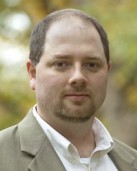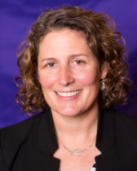
Erik C. Nisbet
Owen L. Coon Endowed Professor of Policy Analysis and Communication; director, Center for Communication and Public Policy, Northwestern University School of Communication
Nisbet's research lies at the intersection of communication, public opinion and public policy in the areas of science, technology and environmental policy. He also studies governance and elections, and international security.
“Bottom line, a Trump win will have awful consequences for the environment and threatens the old adage ‘America the beautiful.’ But regardless of who wins the presidential election in November, high levels of partisanship and legislative inaction on climate policy will continue, and political polarization around the issue will remain and potentially intensify among conservatives and climate skeptics.
“If Trump wins, his administration will continue to emasculate U.S. environmental regulation for another four years with long-term negative impacts on America’s ability to address the consequences of climate change – consequences we are experiencing now during record-breaking hurricane and forest fire seasons. While a Biden victory will allow the Democrats to undo much of the administrative and regulatory changes to climate and environmental policy enacted by the Trump administration, it is unlikely to create any major legislative action on climate change, especially amid the COVID-19 pandemic.”
